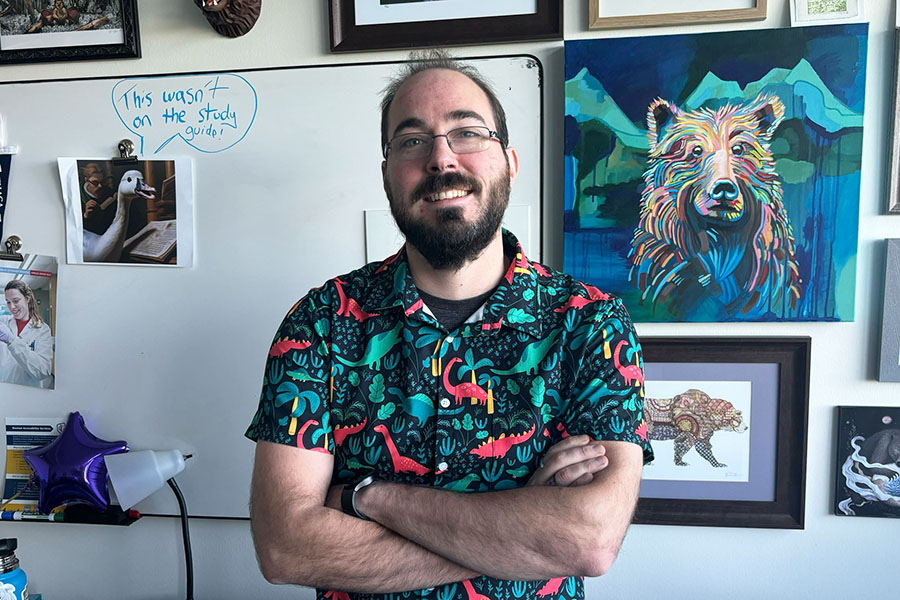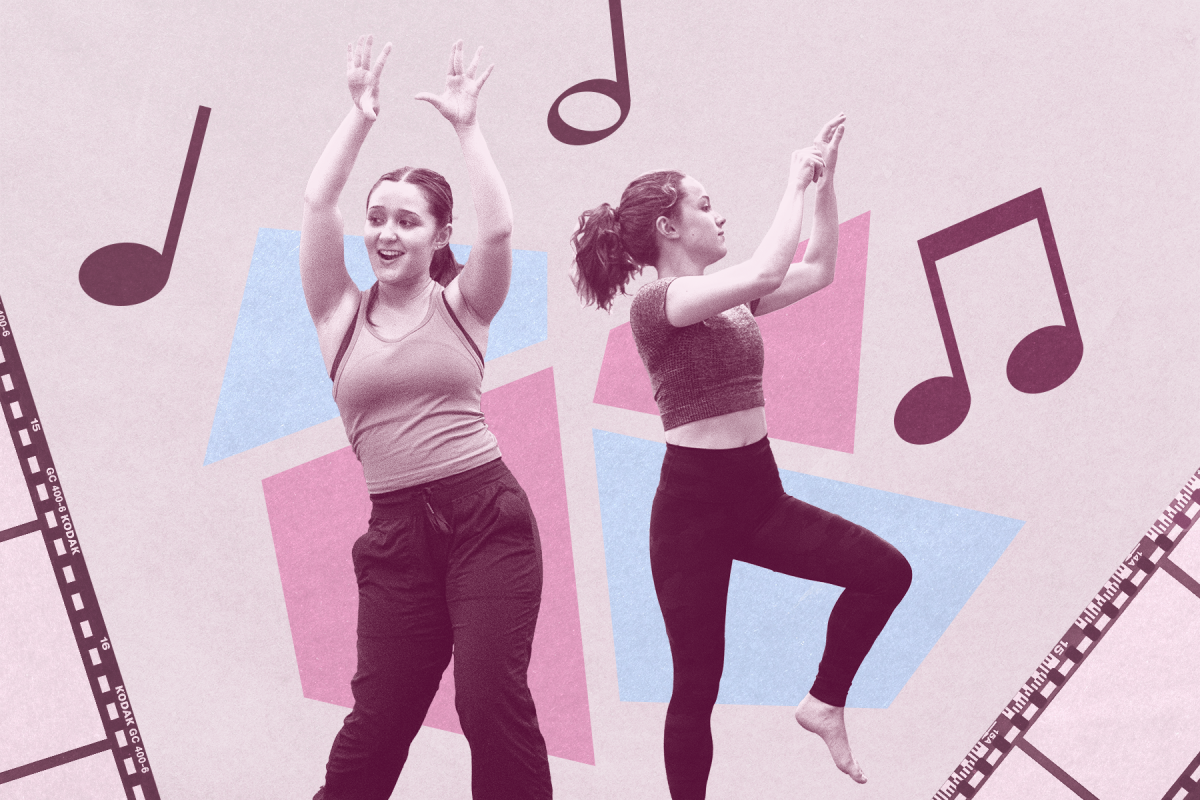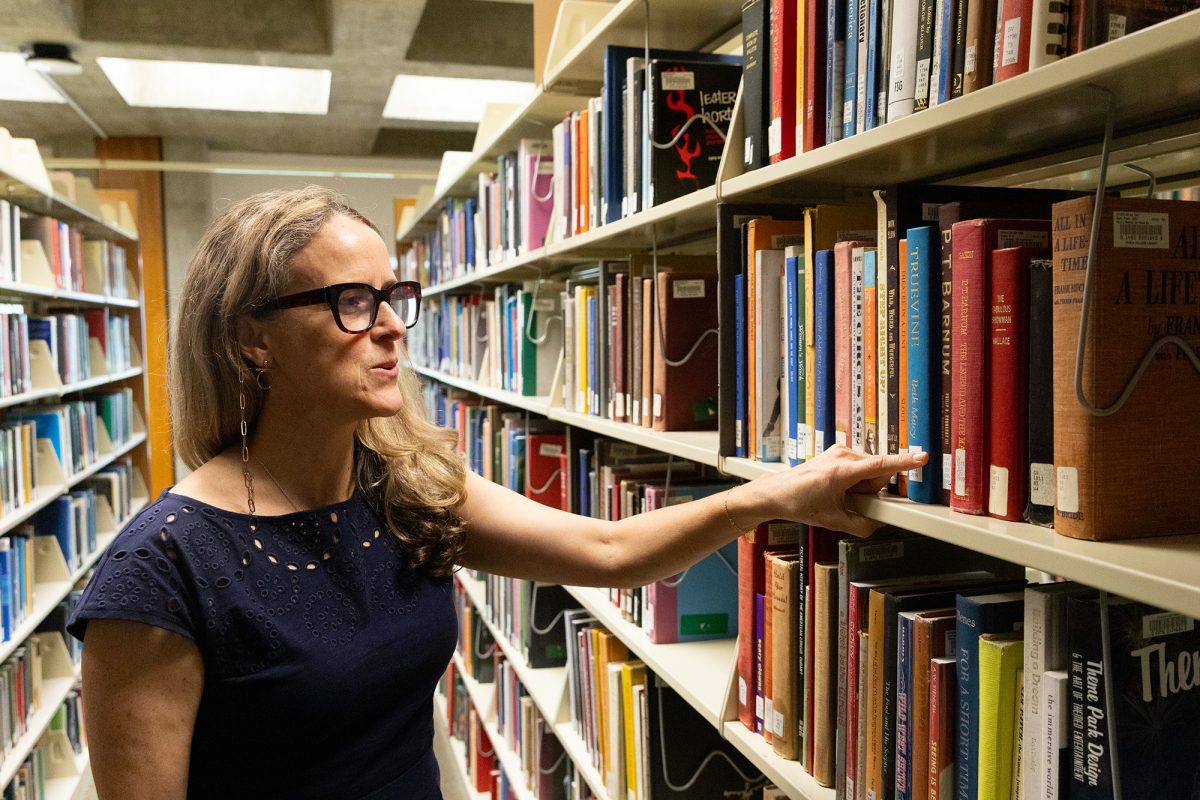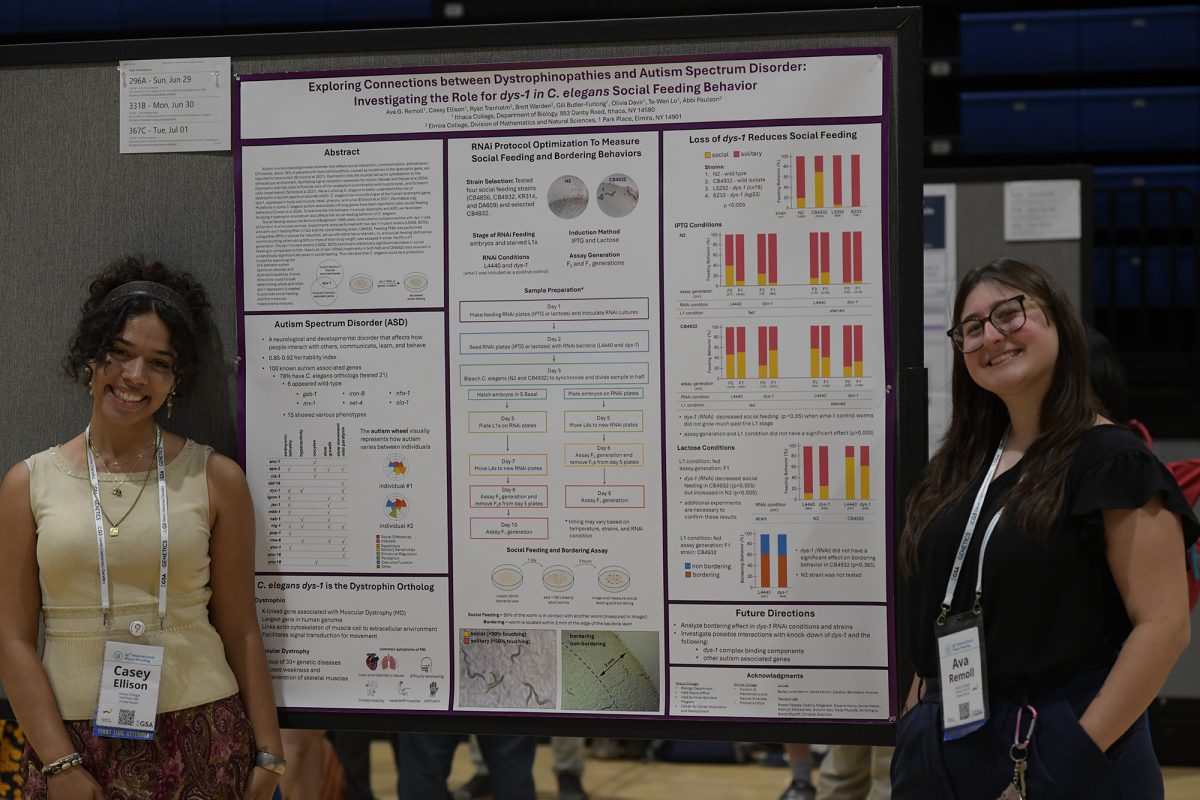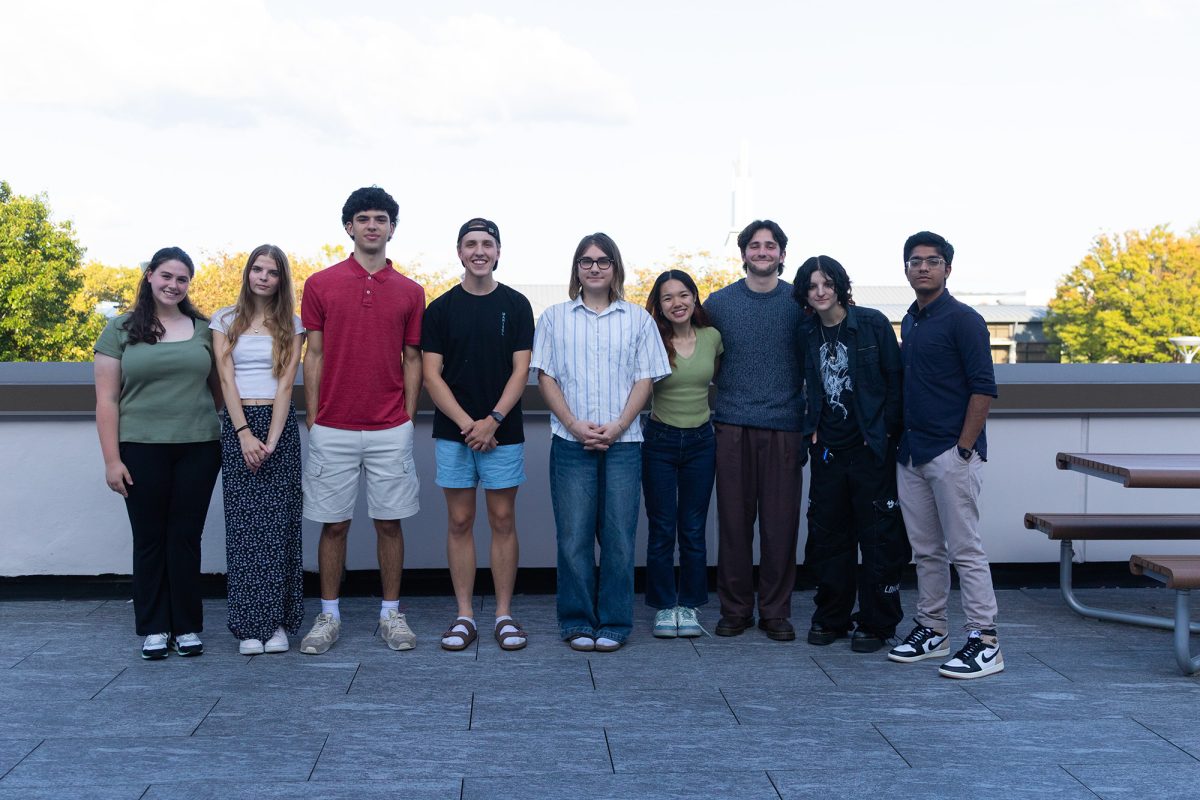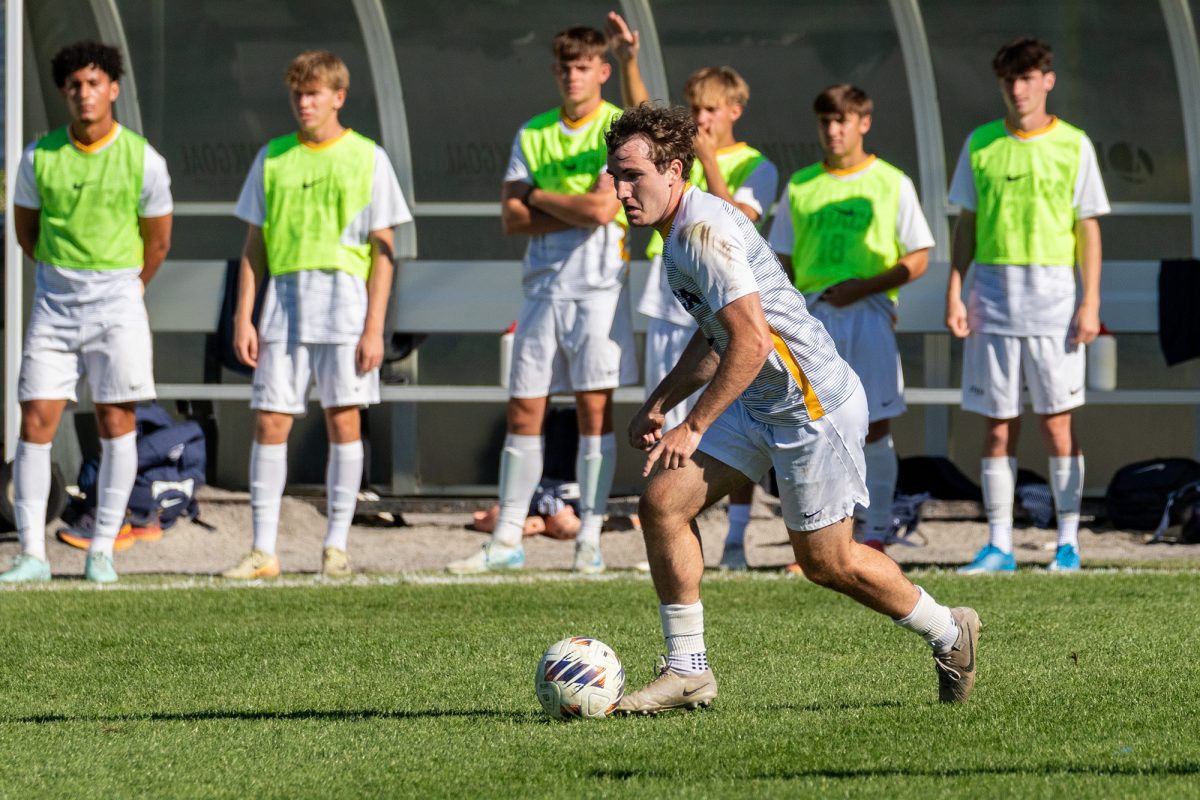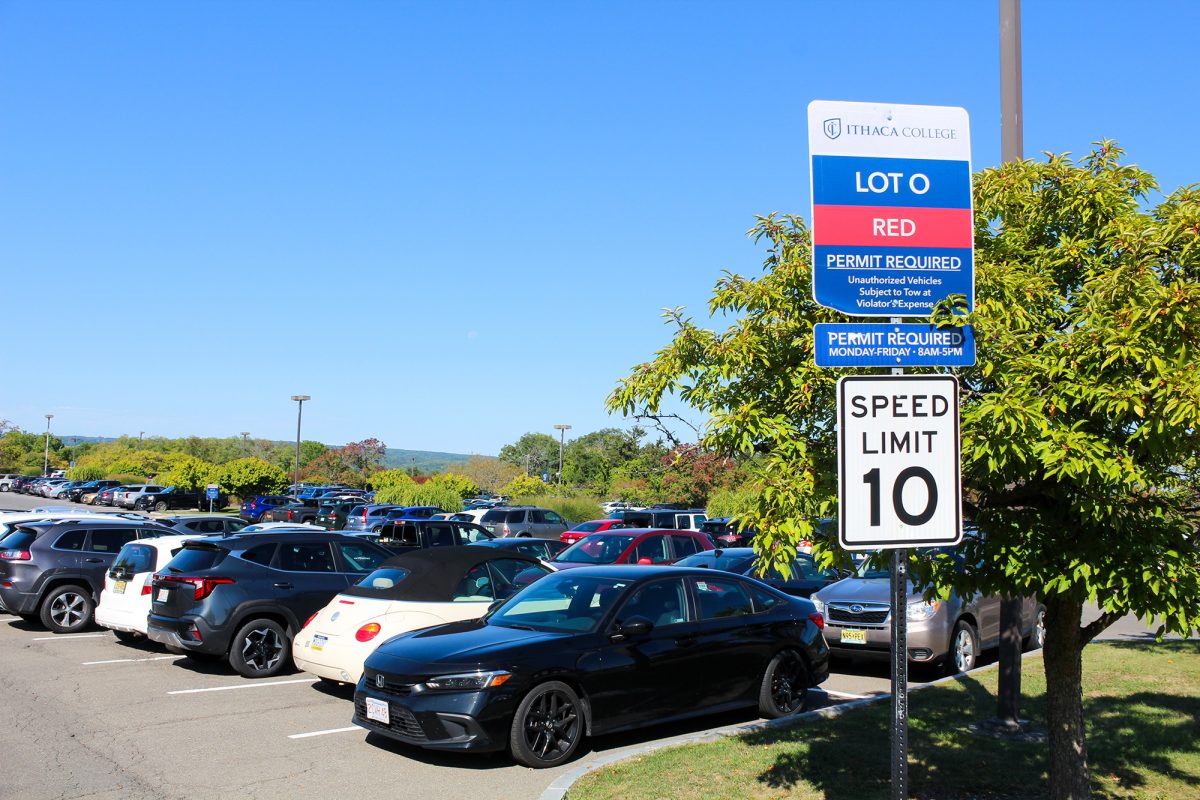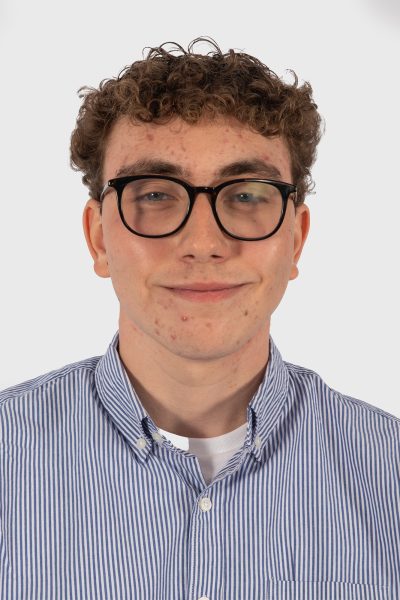Since 2018, Ian Moore, director of Student Accessibility Services, has been working to implement equitable accommodations for students at Ithaca College.
In the 2022–23 academic year, 421 students at the college identified as having multiple disabilities. In Spring 2024, students created the Disabled Students’ Alliance to foster a community for students with disabilities on campus.
Moore gave a presentation and did a Q&A with the Center for Faculty Excellence about equitable attendance accommodations Sept. 24. The college’s attendance policy is in accordance with federal and New York state law, but can vary depending on the course and the instructor. A student can have an attendance accommodation through SAS if they have a documented disability and can be provided with time to make up for coursework they missed.
Staff Writer Eamon Corbo sat down with Moore to discuss the presentation and accessibility for students at the college.
This interview has been edited for length and clarity.
Eamon Corbo: Could you tell me about what SAS does?
Ian Moore: Our main … [goal is] if you’re just thinking … “Why does the college have us here?” is to ensure equal access to students with disabilities to the things that the college sells to you as a student. We do accommodations in academic spaces, we do accommodations in housing, we do accommodations in dining. There’s accommodations that exist across all of the things that you as a student are required to do, and that is our responsibility. … We also try to promote this concept of more inclusive design … to lessen the need for someone to ask for a change in that space.
EC: You recently gave a talk to the Center for Faculty [Excellence] about making attendance policies more accessible, could you tell me a little about that?
IM: It’s very difficult to say anything universal about disability because if you have a disability and I have a disability, even if we have the same diagnostic criteria, it might affect us completely different[ly]. … The only almost fair thing you can say about disability is if you have a disability, it generally robs you of time. So we’re working with faculty to help process how we communicate around these accommodations. What do they mean? What are their processes? And how do we most effectively communicate that so we can have the most effective and reasonable accommodation that’s tailored to an individual space. … There’s going to be a difference in what can be provided in a class that … has no student-teacher interaction and you’re just hearing a lecture, versus like, “Oh, hey, we have these live tissues and they’re set up only for a short time.”
EC: What are some areas of accessibility that the school needs to work on?
IM: In the broadest sense, everything. We can always be more inclusive. We can always design things better. We can always meet the changing nature of our understanding of many disabilities. … So in a vague sense, there’s always spaces for improvement and to do better and to create better systems, and to create better communication and create better foundations. Obviously, being on a campus … on the side of a hill in upstate New York with lake effect snow, there’s a physical access concern we have. … I’m working on a lot of physical projects right now. … We’re able to newly design a website around accessible events where there’s checklists and guides and information for people who create events. We’re not in every space, we’re not in every club, we’re not in every orientation event, we’re not in every alumni event, but all of those should be accessible. … So we’re trying to get information out there [to] help people make the foundationally good decisions.
EC: Have the school’s faculty and administration been receptive to accessibility concerns?
IM: You’ll find resistant populations in any good population, but on the whole, the faculty and staff at Ithaca College are purposely and mindfully inclusive. You will find faculty going above and beyond any legal requirement in many contexts. And, you know, you’ll find people again, trying to make their environments from the get go inclusive. That’s the norm. … I recognize there may be some people on campus that only provide accommodations because it comes in a legal document from my office. But I think if you just talk percentage, I think there’s more people that want to be more accommodating than my office can inherently push. … I think we have more good faculty and staff than we have the resistant populations.
EC: What’s something you want people who aren’t familiar with SAS to know?
IM: Disability is not a bad word, disability is the infinite variability of the human existence. … They say one in five people have a disability. Our numbers are a little bit higher than that because of the type of college we are. But disability is a protected class of citizenry in the United States [and] likely everyone will become part of this community. At some point, your eyes and ears will go as you age and you will become part of the disabled community, which is why inclusive design and thinking about access on a foundational level is so significant.


